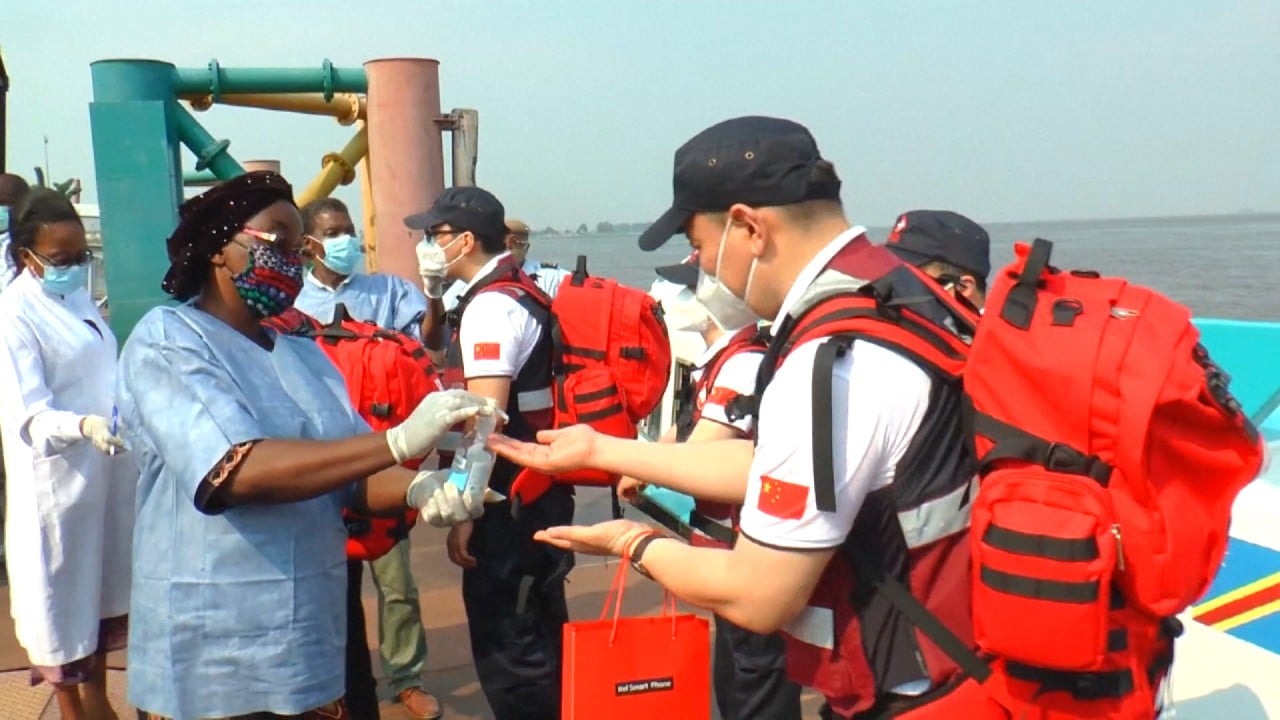
Coronavirus opens door to deeper collaboration in China-Africa healthtech
- Healthtech raised less than 10 per cent of the total amount of venture capital money in Africa in 2019, according to Partech
- Health care is one of the continent’s fastest growing industries, with great demand for private sector growth to fill public sector deficiencies
Covid-19 has brought out the good, the bad, and the ugly in the China-Africa relationship, including rampant racism in Guangzhou against Africans falsely accused of being infected and subsequent diplomatic and civil society escalations.
However, African healthtech has great potential to grow and deepen connections in the face of the pandemic. In comparison to a number of other more capital hungry sectors such as fintech, healthtech raised less than 10 per cent of the total amount of venture capital money in Africa in 2019, according to Partech.
To date, the status quo for Chinese African health care collaboration has been relatively transactional, either within limited government deals, focusing mostly on building infrastructure like hospitals, or Chinese companies merely acting as suppliers for African importers.
While it may be difficult to simply scale up existing supplier relationships, entrepreneurs can take the opportunity of Covid to view their Chinese counterparts as collaborators, not simply as producers.

E-prescription and pharmaceutical scale-up mPharma has set an novel example for collaboration in the healthtech space.
Not only did it purchase hundreds of thousands of PCR reagent tests and hundreds of pieces of lab equipment from Sansure Biotech in Hunan, it went a step further to create a lab training programme for African lab technicians with Sansure's team in Hunan over WeChat.
From the onset, it sought to forge a partnership that would extend beyond Covid-19. By the end of this pandemic, mPharma plans to have a network of medical laboratories with the capacity to perform diagnostics on different diseases in multiple African countries.
China’s health care firms rush to catch Covid-19 fundraising window
This programme will have implications for the future of testing in Africa and will guide the continent's ability to diagnose and treat infectious diseases and enhance public health surveillance.
Gregory Rockson, CEO of mPharma, believes that the African continent needs to “build self-reliance in producing essential health care commodities like PPEs, medical devices as basic as infrared thermometers etc. Through JVs, Chinese companies can establish technology transfer agreements to enable Africa companies to build these products locally.”
It’s interesting that Rockson speaks about the necessity of critical infrastructure to prepare for the next outbreak, as infrastructure is the name of the game when it comes to China in Africa.

China has been very skilled at building physical and digital infrastructure, but with much criticism, due to China’s often predatory and exclusionary practices.
As health care is one of the continent’s fastest growing industries, with great demand for private sector growth to fill public sector deficiencies, perhaps health care is an area where China can be more intentional in knowledge transfer and skilling up local talent.
Helium Health, which digitises data to formalise monetisation and enable telemedicine, just raised US$10 million in their Series A, part of which came from Tencent.
While Rockson is more focused on the physical infrastructure, Adegoke Olubusi, Helium’s CEO, emphasises the need to work with and “learn from Chinese expertise and experiences regarding scaling digital health solutions, especially to the rural areas, because the disease surveillance and response apparatus in Nigeria and other African countries is nascent”.
“There is also a ton of public health strengthening lessons to be learned from Chinese expertise around using digital health technology to quickly detect and respond to disease outbreaks,” he said.

02:39
China dispatches experts, medical supplies to African nations battling coronavirus
Olubusi also notes that one of the reasons they value Tencent’s investment is because of the Chinese company’s reach into other emerging markets, which Helium Health would consider expanding into.
Other non-health related start-ups, like mobility and delivery company SafeBoda, which has investment from China mobile phone company Transsion, are also looking for more opportunities to collaborate with their investors. Safeboda recently launched food and shopping services, hoping that their connections will help them compete with the likes of Glovo and UberEats.
In a similar vein, the investors in another logistics company, Lori Systems, “have been very proactive in helping us optimise our strategy – the relevancy of which has been enhanced given their experience with companies in China,” according to its CEO Josh Sandler.
Given the seemingly large language and cultural barriers, many cross border VC’s and consultants actually have an opportunity to help identify Chinese and African companies that are willing to take risks to achieve better outcomes for themselves and the world.
African nations back WHO on handling of coronavirus epidemic
Ted Breyer of Breyer Labs, and an investor in mPharma, played a pivotal role in setting up the initial collaboration. Because so much business in China is done through guangxi – personal relationships – it is extremely important to have a legitimate introduction in order for the potential Chinese partner to view this as reliable and long-term cooperation.
If an African entrepreneur tries to reach out to a Chinese partner from the internet, they are unlikely to be able to reach the right decision makers in the organisation and establish the right terms for negotiation.
Breyer believes that in today's complex geopolitical climate, “international collaboration can be a substantial risk factor, but the best founders realise that they can't build global companies without international partners. When done right, such partnerships drive the success of both parties and expand the scale of global impact.”
Stephany Zoo is the founder of the China Africa Tech Initiative, and head of marketing of AZA, which helps businesses move money in and out of Africa

